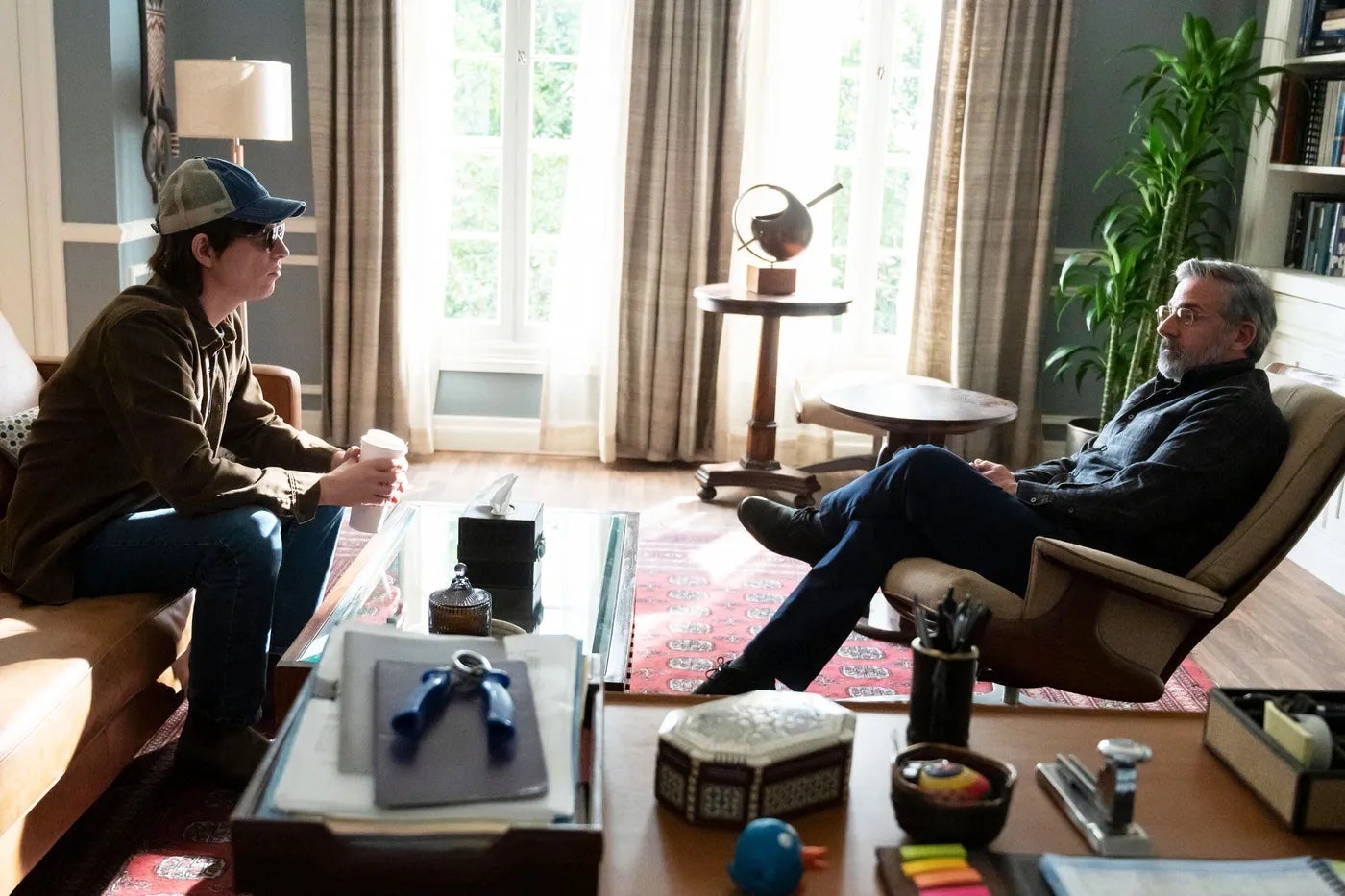
It’s a cliché to say that a TV show has a “killer premise”, and it’s doubly clichéd to make that observation of a serial killer drama. And yet, it’s also the only way to describe The Patient, Disney Plus’s new 10-part serial, which has the Black Death of killer premises. A psychopathic murderer wants to fight the instinct to kill, and so enters therapy – but he can’t open up his tortured id without risking his freedom, so he kidnaps his therapist to keep him on hand for one long session.
Domhnall Gleeson is Sam, known to the police as the John Doe killer. He starts attending psychotherapy with the recently widowed Dr Alan Strauss (Steve Carell), wearing sunglasses and a baseball cap. But however much Sam might want to talk, his fear of capture holds him up – that is, until Alan wakes up in Sam’s basement with a manacle around his ankle. “I have a compulsion to kill people,” Sam finally admits. “Every once in a while, I just do it.” And so begins a Pinteresque two-hander between Sam and Alan, with both men fighting to repress Sam’s worst impulses.
By turns, The Patient is both tense and absurd. It leans into the more outré elements of its premise, such as Sam’s anxious mother Candace (Linda Emond), who knows about his – quite literal – skeletons and supports the decision to, shall we say, seek help. “One of the reasons I didn’t want to go into therapy is because I know it’s all ‘mothers, mothers, mothers’: my mother is not my problem,” Sam protests, too much.
But for the most part, The Patient is a character study of a buttoned-up man struggling to deal with his patient, and his situation. Alan drinks tea, wears cardigans and sports a thick grey beard (it’s the golden rule of Steve Carell: if he’s bearded, he’s serious). Who is the real serial killer: the person who serially kills people, or the person who flosses like their life depends on it?
And it’s a symptom of The Patient’s strange subversion of its thriller premise that it eschews the temptation to have Alan constantly almost-escape, or follow Sam on his killing sprees. Instead, Alan’s imprisonment is accompanied by ruminations on the nature of modern Jewishness. His son, Ezra (Andrew Leeds), converted to orthodox Judaism and became estranged from his parents in his mother’s final years. During his internment, Alan suffers paranoid visions of the Holocaust.
Coupled with the show’s musings on fatherhood – exploring Alan’s connection with Ezra, and Sam’s disturbing relationship with his own father – it has the brittle, contrasting quality of Sylvia Plath’s famous poem “Daddy”.

All this the show handles well. What it handles less well is Sam himself. Sporting dark emo hair, Gleeson is gentle but enigmatic. All the same, Sam has little charisma. He brings home pan-Asian takeaways, drinks enormous Dunkin’ Donuts coffees, and listens to Kenny Chesney records.
“I’m so sorry, I know this sucks,” he says, when Alan comes round. This is typical of the show’s low-key nature: a desire to avoid Sam becoming either The Silence of the Lambs’ Buffalo Bill or the virtuous serial killer of Dexter. But as a result, he becomes a little bland – and the stagey quality of the drama flickers, but never quite catches fire.
All the same, the show is intelligent and unusual, aided by a fine turn from Carell. In less assured hands, The Patient would have devolved from its premise into yet another twisting and turning entrapment drama. Instead, it goes to more interesting places. Some people will find this a waste of a killer premise, but, like all the best thrillers, it raises murder to an art form.







